|
Opening night of Boozy Bard’s A Christmas Carol: Raw packed the basement of the Brumder Mansion with more people than I’d ever seen in the small space before. The evening after Black Friday found a festive crowd packing the place. Things settled-in. As always, the show began with cast members drawing their roles out of a hat. Since this was a holiday show, the chapeau in question was a Santa hat. Opening night of the show was great. Nick Firer drew the honor of playing Scrooge. His sharp comic and dramatic instincts rested quite well in the center of the stage. Naturally the tallest man in the cast was given the task of playing Tiny Tim. Men played women. Women played men. A simple, familiar script began its strange, circuitous course through time. The show features light costuming and a few props. It’s a pretty diversely-sized cast, so all costuming has to be big. enough to fit everyone. It’s kind of remarkable what they’ve been able to come up with given the range of physical frames they’re working with, from a sprite-like Andrea Roedel-Schroeder (who played a charmingly spooky wee-ghost of Jacob Marley) to a towering Keith Gaustad (who played the largest Tiny Tim I have ever seen onstage.) The fact that costuming and props fit together as well as they do is also a testament to just how mind-numbingly universal the overall story is. Honestly it’s probably one of thew single most universally-known stories in the modern world. It’s always nice to see a group of talented comic actors having fun with a story that is so completely familiar to everyone. Jeremy Eineichner’s script is a light stroll through Dickens’ classic that remains true to the spirit of the story. Bits of comedy and silly asides drape whimsically over the heart of a story which remains remarkably vivid even in and amidst the merriment of a packed house of generously drinking theater goers. Things get a little lost in places, but part of the fun is watching them stumble back on track once things have gone astray. Things got bent Black Friday evening. David Kaye played a smiling...strangely amorous...Spirit of Christmas Yet to Come. In the future, Scrooge was terrified of a shrink-wrapped styrofoam tombstone featuring a skull that had light-up LED eyes. Somewhere in the course of things, a towering Tiny Tim grabbed hold of an inflatable turkey over dinner which seemed to make some sort of sense at the time. It all seemed to inexplicably fit together. The show is free throughout its run. Donations are being accepted for the Sojourner Family Peace Center. It’s a genuinely enjoyable evening benefitting a very worthy cause. They’re taking donations of all sizes for the Family Peace Center. It’s a free show. It’s a distinctly different cast every evening. There’s alcohol. It’s fun. Given the current state of things, there’s really no reason not to get a little weird with Dickens this month. Boozy Bard’s A Christmas Carol Raw is on tour, popping-up at a new place every Friday now through Dec. 21. November 30th, the show appears at the Astor Hotel on 924 E Juneau Ave. December 7th, the show makes it to Westallion Brewing Company in 1825 S. 72nd St. in West Allis. For a full list of dates and shows, visit Boozy Bard online.
0 Comments
This month The Boulevard Theatre presents a staged reading in an intimate space not far from UWM. Terrence McNally’s Mothers And Sons is a delicate drama of three people who don’t quite know each other. An unexpected meeting results in some pretty deep conversation about the meaning of human connection. It’s the perfect drama for a staging that eschews everything but the script, the actors, the characters and the audience. Joan End has the reserved, conservative presence of an occasionally brutal gentlewoman named Katherine. End plays the mother of a man who passed away quite a long time ago. She’s dropping by the New York apartment of a man her late son had been in a very serious relationship with. She’s come by his place in an attempt to understand herself by way of understanding something about the man he fell in love with. Mark Neufang plays Cal--the man who had loved Katherine’s son. It’s been ages since his passing. Cal is now married to another man. Cal’s quite successful. He works in finance. Neufang’s thoughtfully compassionate stage presence serves the character well. He maintains a generally congenial attitude even when communication gets a bit difficult. Cal’s openness to a woman who is essentially an uninvited stranger is a point of frustration with his husband Will. Will is played with tempered passion by Nathan Marinan. Will has been dealing with the ghost of Cal’s long-lost love for a very long time. He is understandably upset when the mother of said ghost pops-by on her way to Europe. Marinan carefully weaves frustration with tightly-held sense of decorum and genuine need to understand the deeper matters of bigotry and ignorance. It’s a very balanced approach to a very sophisticated character. Pamela Brown Stace rounds out the cast as both narrator and Bud: the young son of Cal and Will. Bud seems to thematically represent a future in which everyone could be accepted regardless of who they are. (Bud is openly accepting of everyone.) Pamela Brown Stace plays Bud with simple, innocent delivery lovingly bereft of the exaggeration that so often occurs when an adult plays a child. The biggest presence in the drama is the absence of Katherine’s son. If Bud represents a kind of hopeful future, then Katherine’s son represents a tumultuous past that is rapidly being forgotten. There’s a lot being said in the script about the gradual march of time. Katherine’s an older generation. Cal’s older than Will. Will is a doting parent of Bud. McNally’s script intricately pieces together a very complicated dynamic between every character. In a staged reading, the relations between the characters feel that much more immediate than a full staging might manage. Director Mark Bucher has found a respectable balance for a remarkably nuanced drama. Boulevard Theatre’s staged reading of Mothers and Sons runs through Nov. 15 at Plymouth Church on 2717 East Hampshire. For ticket reservations, visit the show’s page on Brown Paper Tickets. Get to know Mary over the course of the year. She seems like a nice person. She begins the year dramatically falling out of a serious relationship. She ends the year in a much better place. The year is actually only less than a couple of hours in a small theatre. The woman in question is an actress onstage in Milwaukee playing a stage actress in New York. And since it’s the stage of the Next Act Theater directed by David Cecsarini, it’s a really good show. The play is The Twelve Dates of Christmas by Ginna Hoben. The actress playing Mary is Susie Duecker. There are a few others on stage with her but she’s the one delivering the story. Since there’s no intermission, this is a little over a year condensed into a little less than two hours without interruption. A largely one-person show is a challenge for any actor. Duecker has no problem being the kind of person who is fully engaging alone under stage lights for a couple of hours. She’s cool. There’s a down-to-earth Midwestern charm about her. She gives the character an emotional reality that feels very much like a full year's worth of happiness, anxiety and everything in between. Duecker has a presence onstage that makes the formality of the theatre feel almost immaterial. There is a great emotional warmth about it. It’s casual. But it’s classy too. This isn’t some Lifetime holiday movie. It’s a very social and conversational script. The monologue is charming and witty. The character feels very approachable. Any discussion of the plot, though...would entirely miss the point. If the title sounds like an annoyingly cloying made-for-TV movie from a few years back, that’s because it WAS the title of an annoyingly cloying made-for-TV movie from a few years back starring Amy Smart. (2011. ABC Family.) Hoben’s script, which was published in 2012, is completely different from the TV movie of the same name, but that doesn’t change the fact that a synopsis of the play would sound like something out of, “Fa La La La Lifetime.” Mary sees her fiancee making out with a girl from the office live on national TV during the Macy’s Thanksgiving Day Parade. Will she have a string of awkward dates as a newly single woman? Absolutely. Will she learn to find love in a small town with a single father by the end of the story? Not exactly, but on a plot-level this is still really close to being cheesy holiday TV fare. The weird thing is...it doesn’t matter. Duecker is so good at being so heartbreakingly earnest with the emotional end of the comic drama. It feels very emotionally authentic. No cheesy made for TV lighting. No wholesome locations in the US that actually turn out to be filming locations in Canada. No awkwardly stiff soap opera acting here. Duecker gives it all a genuine emotional appeal. It’s all quite warm and classy. Duecker’s delivering heartfelt earnestness in a cozy environment. She’s got the warmth. The classiness comes in from the back-up. Charismatic piano man Jack Forbes Wilson lends the show a little atmosphere in the background. Joining him are The Doherty Sisters, who also serve to assist Duecker throughout the show. Marcee Doherty-Elst and Kelly Doherty lend the a speechlessly festive attitude throughout the show that lends some humor around the edges of a very satisfying couple of hours with a fictitious actress brought to vivid life by a very real Susie Duecker. Next Act Theatre’s staging of The Twelve Days of Christmas runs through Dec. 9 at Next Act’s space on 255 S. Water St. For ticket reservations and more, visit Next Act online. Long-running Milwaukee-based sketch comedy group Broadminded takes the stage this weekend with another show at The Underground Collaborative downtown. The theme of this show is also the title: 40! The group has been around for over a dozen years. Time progresses. Four women perform comedy about (among other things) being 40-ish. Over a dozen comedy shorts whisk by in a breezy evening in the lower level of a mall downtown. There's the Cozy Warmth of Familiarity The dynamic between Stacy Babl, Anne Graff LaDisa, Melissa Kingston, and Megan McGee remains engaging a dozen years in. Unlike so many small-stage group projects...Broadminded hasn't had a single member of the group drop out or get replaced. Given everything that goes on between a group of people in a given decade, this is one hell of an accomplishment in and of itself. There’s a clever kind of familiarity that has settled-into the group over the years. Like any sketch comedy show, there are some moments that aren’t necessarily funny. It’s fun even when it isn’t funny, though. The fun comes from a familiarity between four women who have been working in sketch comedy together for over a decade. There's Musical Stuff The observational comedy of life around 40 years of age has some musical moments. Stacy Babl and Anne Graff LaDisa do a clever spoof of “Sixteen Going on Seventeen,” from The Sound of Music. “I am 39 Going On 40,” ends the first half of the show. The second half ends with Broadminded playing a 1940s Andrews Sisters-style girl group singing about the distinct issues with...uh...enthusiasm at the age of 40 in the show-closing melody “Get Me in The Mood.” Another pop tune pops-up throughout the show as various people find cool, rhythmic confidence in the face of adversity. It's a fun, little gag that recurs throughout the show. There's Biblical Stuff The comedy isn’t all about being 40, but the number DOES pop-up throughout the show. There’s an examination of the whole “40 days and 40 nights” thing in which Noah has to deal with his annoying kids prior to embarking on the ark. The group later takes a satirical look the New Testament as the roughly 30-year-old political activist Jesus Christ holds a press conference about the Beatitudes in a clever bit of sociopolitical satire. And Other Ineffable Mysteries And then...there are the two grumpy older women. Stacy Babl and Melissa Kingston play a couple of old women lamenting about the state of the world and discussing minutia of a shared past in a residential neighborhood. It’s the type of thing that’s been done to death. And there’s no reason why it should be funny. But it is. (I have no explanation.) Babl and Kingston do a really good job of convincing everyone that the premise is funny. Everybody laughs because it IS funny. I don’t know why it’s funny though... There's Guided Meditation as Well By far the funniest bits in the show are the three mindfulness meditation skits. There’s a smartly layered comedy in spoofing guided meditation audio tracks as each member of the group reacts a bit differently to the audio. The first one cleverly features constant, jarring corporate disclosure. Another one is guided by a voice talking with gradually increasing resentment about a mountain that everyone’s being asked to visualize. Anne Graff LaDisa is alone for the “Raisin Meditation,” which might be the funniest of the three tracks. As my wife mentioned later on...it can be difficult to tell quite where those audio tracks are going until they get there. Funny stuff. It's Fun Broadminded’s group dynamic has evolved in subtle ways over the years. The sheer volume of material they’ve produced in over a decade is pretty staggering. Twelve years in and they’re still quite funny. And they're STILL doing new stuff. (wow.) It’s always nice to see the four Broads back onstage. The Broadminded sketch comedy show 40! runs through November 30th at the Underground Collaborative on 161 W. Wisconsin Ave. For more information, visit Broadminded online. Memory is a formless miasma until you start making-up stories to explain why it’s there. We’re all storytellers. Some of us are better at telling stories than others. The best storytellers tend to inspire...more stories. (From everybody.) Spalding Gray did that. Last night I bussed it all the way to the East Side to see Theatre Gigante pay tribute to the late biographical monologuist on a small stage.
The venue is a UWM black box studio theatre. Kenilworth Studio 508. A younger crowd than mixes with older people who are familiar with Spalding Gray. (UWM College kids.) It’s kind of weird looking around and realizing that some of the people in the audience would have been in grade school or preschool when Spalding Gray took his own life back in 2004. It’s hard for me to make a connection with that. I was a weird kid. Always knew who Spalding Gray was growing-up. My dad would tell the story of working with him on a show as an intern at the Goodman Theatre in Chicago. Spalding Gray is...Five People The name of the show is Spalding Gray: Stories Left to Tell. It’s a really interesting look at the life of the man in his own words. But there are kids who had come to see the show. Time makes everyone echoes. Time shifts. In time Spalding Gray becomes just another name. He’s just another voice. His words become a part of a generation of storytellers that feed into the tapestry of human memory. Anticipating this, the show splits his biographical writings into a five different thematic voices...each played by a different member of the ensemble that has been brought together by Theatre Gigante. A Blurry Nixon Did It For Me Last Night At first it’s more than a little weird hearing the words of Spalding Gray spoken through the voices of others. Gray’s distinct voice is difficult to peel away from the words he’s written about his life, so it’s a bit disorienting. (I remember this from the last time I saw the show years ago.) There’s something about hearing his voice echo through others, though. It’s something that reaches into the heart of the human condition. It took a while for it to settle-in with me last night. Somewhere around the middle of the show Jill Anna Ponasik is performing bits from Gray’s 1997 show Gray’s Anatomy. (I love that show.) She’s speaking in Spalding’s words talking about meeting a blurry Richard Nixon and the right aesthetic finally jostles me. Ponasik’s crisp comic precision feels a million miles away from Gray’s voice...but it works. She’s telling a story about his life, but it reflects into her...and there’s an aesthetic parallax in that moment that jostles everything together for me. Suddenly it makes sense that other people are speaking his words from their own voices. Suddenly everything that came before that moment in the show feels aesthetically right. It makes perfect sense that his voice would refract into so many others. That's what good stories do. Last night it took a story about a blurry Richard Nixon to realize that. Weird. Directors Isabelle Kralj & Mark Anderson have developed the show with a love for the biographer. The universality of the human condition feels strikingly vivid. It’s a cozy sage. Kralj, Anderson, Ponasik, John Kishline and Deborah Clifton share a stage and the words of a man who had a fearlessness about his own life onstage. Everything in his life was completely open as it echoes onto the stage here in endearing fragments shared among friends. I love this show. Theatre Gigante’s Spalding Grey: Stories Left to Tell runs through Nov. 18 at the Kenilworth 508 Theatre on 1925 E. Kenilworth Place. For ticket reservations, call 1-800-838-3006 or visit gigantespalding.brownpapertickets.com. My concise, comprehensive review of the show runs in the next print edition of the Shepherd-Expresss.  Marquette University offers-up a chance to return to Bruce Norris’ Clybourne Park this month. The spinoff of the classic drama A Raisin in the Sun was staged by the Milwaukee Rep not too long ago. The comic drama’s two acts straddle Lorraine Hansberry’s drama, which stands as arguably one of the greatest dramas of the 20th century. The first act takes place in the soon-to-be Younger family home before Hansberry’s play. The second takes place just a few years ago. While it doesn’t exactly live-up to Hansberry’s drama, Clybourne Park is a fascinating look at race relations in 1959 and 2009.
The Distance Between Two Points The play opens in 1959. Margaret Phillips and Will Knox play a couple who live in the predominantly white Chicago neighborhood of Clybourne Park. They have lost a son. They are selling their house. Phillips plays the restlessly relentless need of a 1950s housewife to make any kind of connection she can. It’s kind of heartbreaking to see Phillips’ desperation. Phillips mixes the longing of need with the overwhelmingly forced cheeriness of June Cleaver. It’s a very difficult balance between desperation and genuine happiness. Norris hands a much more sophisticated challenge to the guy playing her husband, though. Will Knox has to be careful. He’s sitting there in a chair pretending to eat ice cream. And brooding: he’s got to be brooding. (And eating ice cream.) There comes. a point where Jackson Hoemann shows-up expressing concerns that the couple have sold their home to a black family. This brings-up certain issues about the couples’ son and their reason for selling the house below cost . . . and Knox is handed the challenge of switching from brooding-eating-ice cream to explosively angry. And it’s a hell of a weight to hang on any actor to switch from emotionally distant to angry. But Knox plays it quite well. Phillips plays a wife significantly distanced from her husband, who is still very seriously mourning the loss of his son. (She is too, but she’s far more active about trying to make other connections.) The physical distance between Phillips and Knox onstage is more or less negligible. The emotional distance might as well be infinite. Phillips and Knox do a good job of rendering that emotional distance in a first act that feels very emotionally immediate. Race Relations in a Home On A Small Stage It’s interesting how quickly things change. The second half of the drama takes place in 2009. So much has happened in race relations since then that a 2009 drama feels like a period piece. Things were so different--so much more...civil during Obama’s first year in office. Of course, they weren’t exactly pleasant. The second act of Norris’ drama has Lindsay Webster and Simon Keiser as a wealthy white couple moving into the home and looking to substantially alter the old building. Brielle Richmond and Mario Walker play a couple concerned about gentrification of the neighborhood. Things are civil between the two couples until verbal aggressions explode...grinding rational discussion to a halt. The dialogue in that second act is fascinating. Norris has a really clever grasp of the trillion and one distractions that shatter the modern consciousness. There are phone calls and bits of trivia and the occasional bit of distraction from the edges of the moment. A dialogue as fragmented as Norris manages in the second act is fiendishly difficult to bring together, but director Jamie Cheatham has done an excellent job of allowing everyone in the cast to coast through his or her own, individual realities as the gradually come together into...a serious argument. It’s really, really fascinating to watch. Of particular note here is Lindsay Webster as a visibly pregnant woman who is making every effort to be as socially conscious as possible, but narrowly missing at every turn. It’s a very sympathetic portrayal. And Brielle Richmond is AMAZING as an African American woman who is trying to be as even-tempered as possible about presenting her concerns to the white couple. Marquette University Theatre’s production of Clybourne Park runs through Nov. 18 at the Helfaer Theatre on 1304 W. Clybourn St. For ticket reservations, call (414) 288-7504. A comprehensive review of the show runs in the next print edition of the Shepherd-Express. As November begins, Forge Theater opens a production of Steven Dietz’s contemporary dramatic comedy Becky’s New Car. A cozy, little stage serves as an American home, an office at a car dealership and that hazy space in between theatre and reality where an actress and the woman that she’s playing might occasionally address an audience while talking about her life. It's a very social trip to a studio theatre with characters that feel as real as anyone you might pass on the street. Amy Hansmann is graciously enjoyable as a woman lost in the machinery of her own life. Steven Dietz’s script asks a lot of the actress playing Becky. She’s the center of the story. She’s supposed to be endearing and casual, but her life is being presented in very dramatic action onstage for a couple of hours. Hansmann makes this seem perfectly natural in her monologuing to the audience and her interactions with the rest of the cast. Her office, home and a terrace she sometimes visits are all right there. Hansmann makes the home environment feel perfectly natural. There’s a real intimacy there between actor and audience. Dietz has Becky asking various things of the people in the front row. She’s an appealing personality onstage, so why not help her with her dress or staple a few things together for her? Hansmann has such a refreshingly down-to-earth presence onstage that she makes it feel natural. The informality of the space between actors, characters and audience conjure an instinctively believable reality to the story. Becky’s home and office are onstage in studio performance space of a microbrewery...which should feel awkward in light of how casual it all seems. Hansmann’s affability in the role of Becky bridges the weird gaps between venue, audience and story. She’s aided in this quite a bit by the man playing her husband. Robert W.C. Kennedy is sparklingly charismatic as Becky’s husband Joe. There’s a wit to the character that Kennedy picks-up on, lending a very distinct personality to it that solidly grounds Becky’s home life. Whereas Hansmann is playing a character out of synch with her own life, Kennedy is playing a roofer who seems quite content with things. Joe’s confident contentedness give Kennedy a casual mastery of the home space that feels appealingly earthbound. Joe Krapf enters the stage with a thoughtful daze in the role of a grieving millionaire who wants to be a few cars after hours at the dealership where Becky works. The chance encounter threatens to change Becky’s life in a very big way. Krapf carries a whimsical nonplussed sort of a demeanor throughout much of the show, opening the dramatic dynamic of life onstage in various appealingly awkward directions. Cara Johnston has a very crisp and bracing presence in the role of the millionaire’s daughter, who is looking for a change in her own life as well. A woman born into great wealth is scarcely someone who would seem terribly interesting in a dramatic comedy, but Johnston radiates a genuine compassion that makes for a very refreshingly human heiress. Jason Nykiel brings a young intellectual energy to the stage as Joe and Becky’s son Walter--a college student focussing on psychology. Nykiel plays a man lost in his studies who sees everything through the lens of his studies. Director Jake Brockmann has found just the right pace in just the right place for a comedy that wields the weight of real drama as characters attempt to find some direction in life. It all seems so very simple and so very complicated at the same time as we peer in on a few lives from the snug intimacy of a studio theatre. Forge Theater’s production of Becky’s New Car runs through Nov. 10th at Urban Harvest Brewing Company on 1024 S. 5th St. For ticket reservations, visit Forge Theater online. |
Russ BickerstaffArchives
July 2024
Categories |
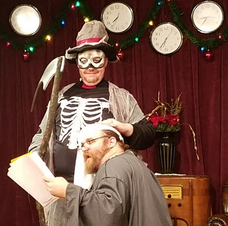
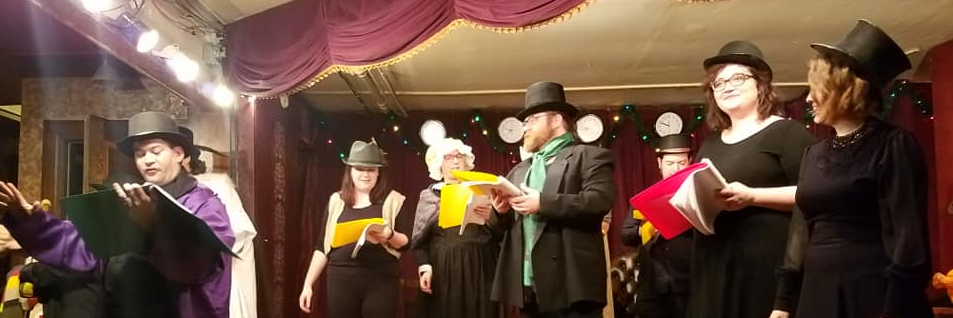
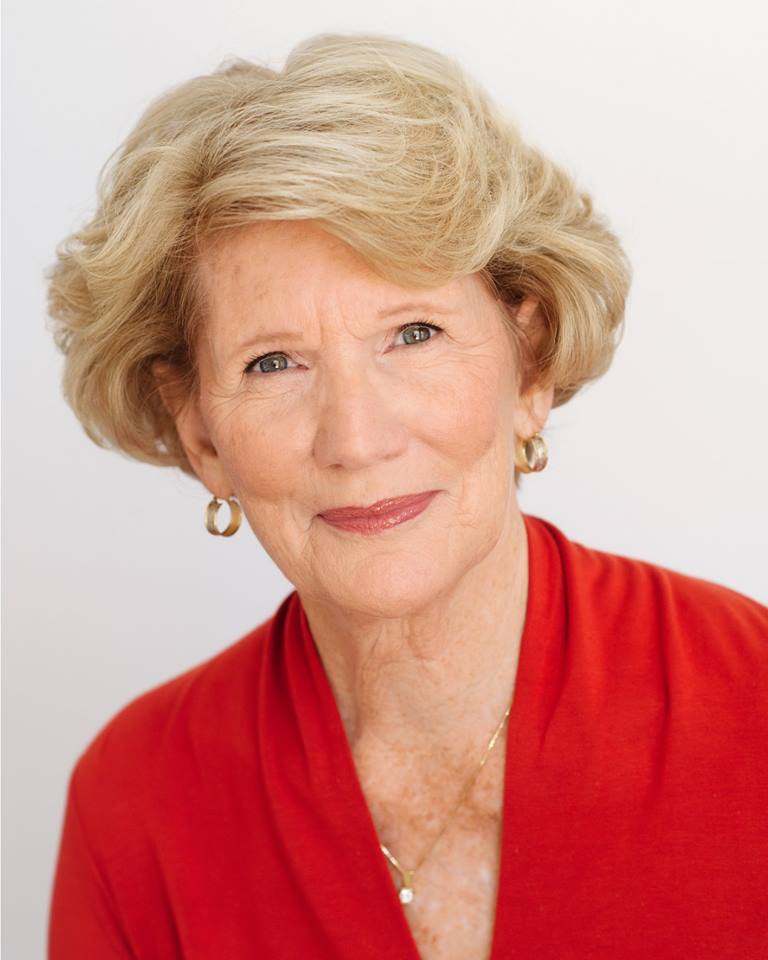


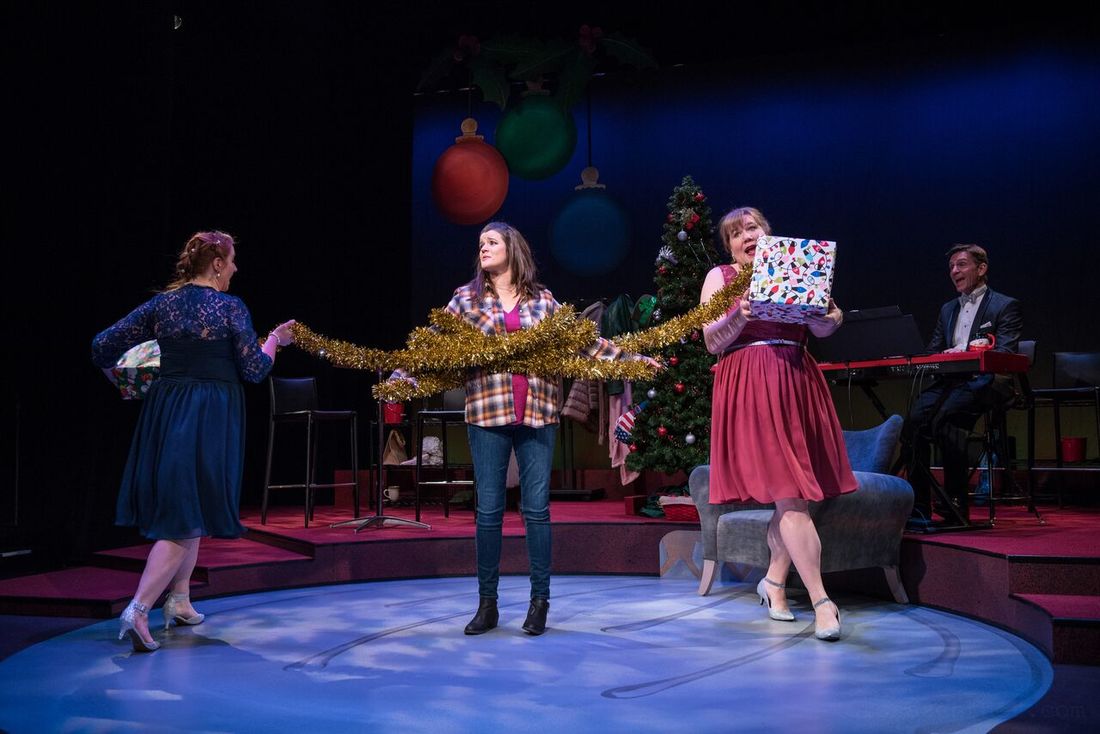

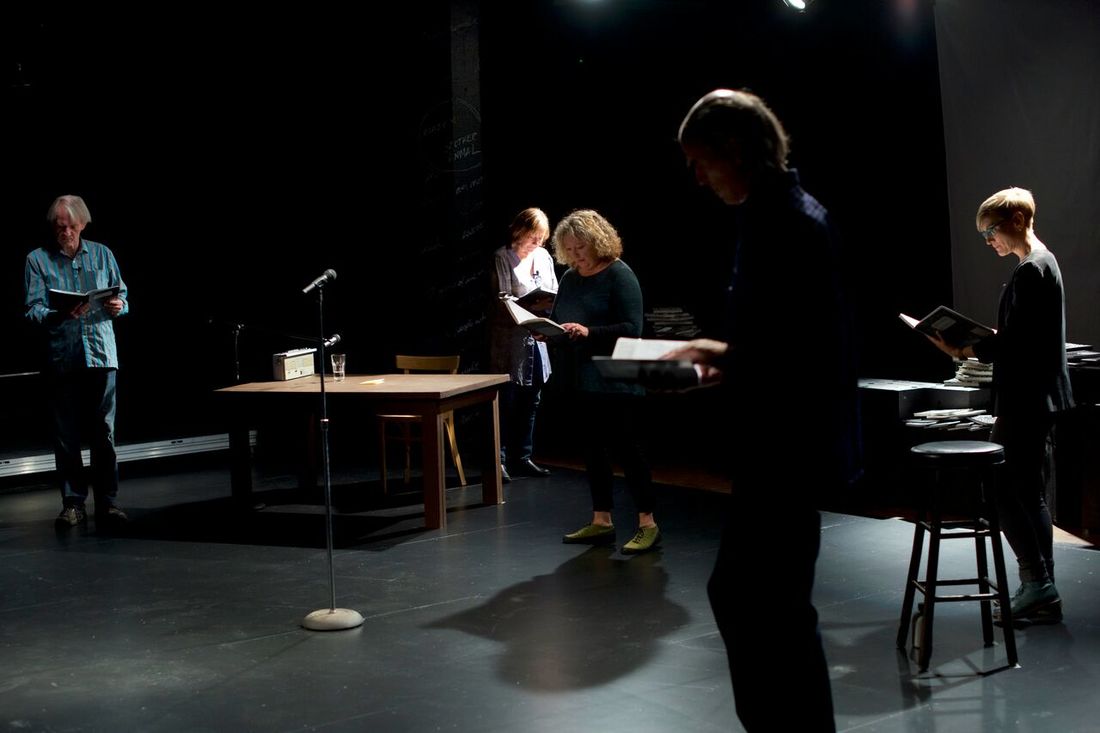

 RSS Feed
RSS Feed
